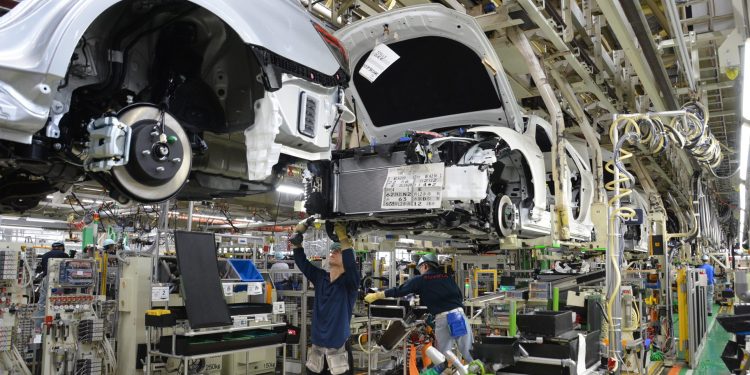Japan gives Toyota $1.3 billion for EV battery production
Words: Harrison Wade | Photo: Toyota
Toyota has been given a 120 billion yen ($NZ1.36 billion) grant from the Japanese Government to help ramp up the country’s domestic production of storage batteries, like those used in EVs.
The hand out comes as part of an overall 330 billion yen ($NZ3.73 billion) package of subsidies for local carmakers and other battery manufacturers in order to create a secure domestic supply chain.
“As the international competition for storage batteries is intensifying, competition for capital investment is also becoming more intense,” says Yasutoshi Nishimura, Japan’s Minister of Economy, Trade and Industry.
It’s no secret that Toyota is behind the mark when it comes to electrification, but by 2026, the Japanese carmaker plans to have released 10 new fully electric models in a bid to catch up to brands like Tesla and BYD which currently dominate the global EV market.
Toyota’s share of the subsidy will also no doubt help its newly-revealed plans to create next generation solid state batteries and radically redesign its factories.
Mass production of solid state batteries would put Toyota a foot ahead of its rivals considering their range advantage compared to the current crop of lithium-ion units. However, they’re still expensive to make and will likely remain so for years to come.
Toyota also plans to manufacture more efficient lithium-ion batteries too, supposedly offering up to 1000km of range.
Another innovation Toyota is set to introduce is a new form of production line where instead of relying on a ‘conveyor belt’ system to move through the factory, the electric vehicles will drive along by themselves while being built. This will likely reduce manufacturing costs and ultimately bring down the price of its electric cars.
The mass production of the carmaker’s new batteries will begin in stages by the end of 2026, according to Reuters, in line with its new model roll out.





